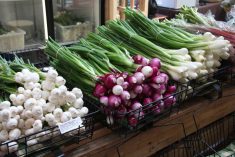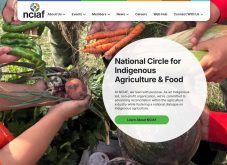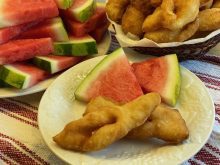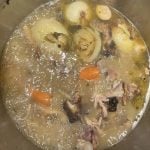I recently returned from a vacation to Las Vegas. I had a great time,
and enjoyed taking in a Nascar race. The vacation went by so quickly
that I wished it could last longer.
As the plane landed we were dropped back into reality. The cold winter
wind, the sick children and the dishes. Despite the guilt of leaving
small children behind, there seems to be proof that vacations are
needed for good health. My oldest son told me that I was much nicer to
Read Also
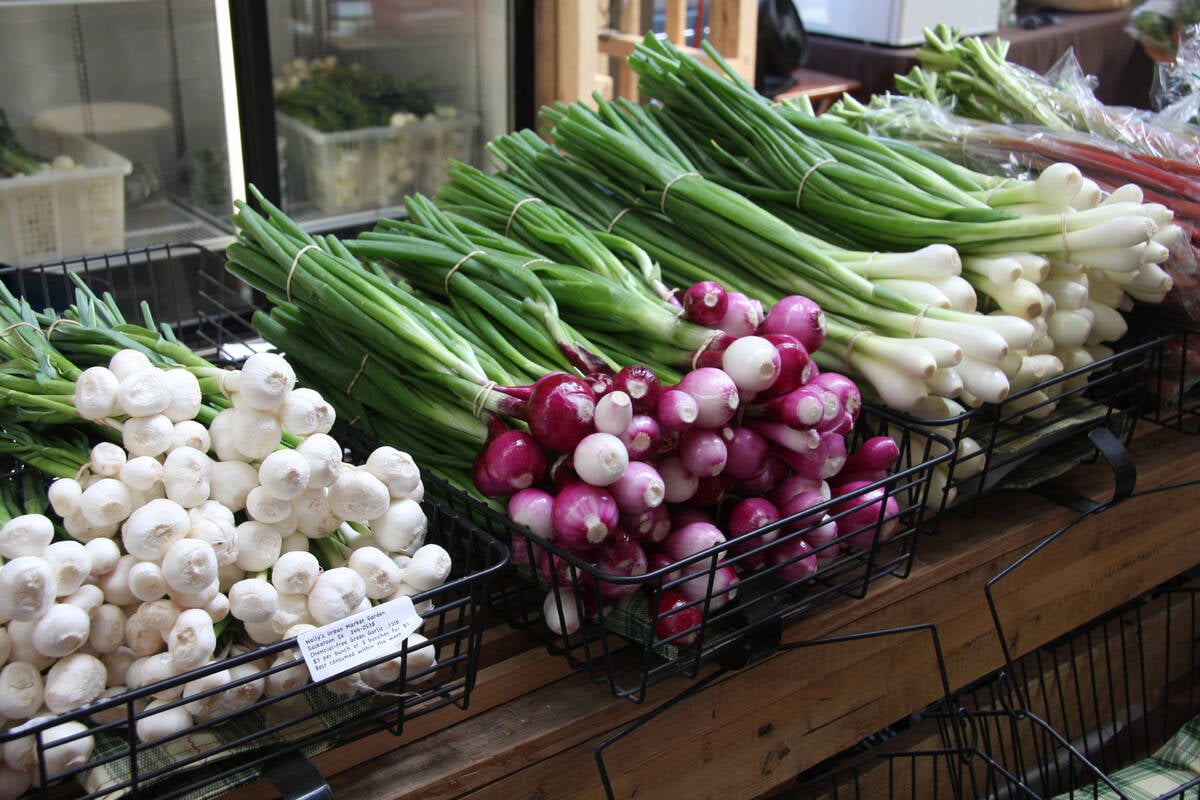
Starting a small business comes with legal considerations
This article sets out some of the legal considerations to start a business to sell home-grown product, such as vegetables, herbs, fruit or honey.
him when I returned home.
Mel Borins, an assistant professor in the department of family and
community medicine at the University of Toronto, has written books
about the health benefits of vacations. These include:
- Live longer – Research done on 749 women aged 45-64 in Framingham,
Massachussets, showed both homemakers and employed women who took fewer
vacations had a significant increase of heart attacks. Homemakers who
had a vacation once every six years or less had almost twice the risk
of developing a heart attack as homemakers who took vacations two or
more times per year.
- Maintain brain cells – James Sands, from the South Coast Institute
for Applied Gerontology, studied 112 women aged 65-92 and found there
was a relationship between more stressful life events and a decline in
intellectual functioning. However, there was a positive relationship
between vacations and intellectual functioning.
- Increase life satisfaction – Linda Hoopes and John Lounsbury,
researchers in the psychology department at the University of
Tennessee, surveyed 128 employees before and after a vacation. They
found there was an increase in life satisfaction after a vacation.
- Decrease burnout – We need to go away to gain perspective on our
life. Researchers at Tel Aviv University, Mina Westman and Dov Eden,
found that feelings of burnout in all 76 workers studied, decreased
significantly during their vacations.
Visa scam
A Visa credit card scam has spread from Canada to the United States,
according to American authorities.
Bank officials say victims receive letters from the “Visa Department of
International Investigators” saying their card had been cancelled
because they suspect it had been used in criminal activity. The letter
says the card holder will be phoned by an investigator to verify the
information. It also advises the person not to contact representatives
of the financial institution that issued the card as “they will not be
able to assist you until our investigation is over.”
Visa has made it clear it has not issued such a letter and that its
name is being used illegally. The letter looks official, so anyone
could be confused by it.
Consumers should never give out their personal financial information to
anyone they don’t know, or if they haven’t initiated the call
themselves.
Storing eggs
I was asked if eggs can be stored at room temperature and I contacted
the Canadian Egg Marketing Agency for an answer.
The agency said fresh raw eggs are perishable. Over time, the white
becomes thinner, the membrane around the yolk weakens and breaks more
easily and the fresh egg taste disappears.
Always buy eggs from a refrigerated display case. Eggs kept at room
temperature deteriorate as much in a day as they would in a week under
refrigeration.
Keep eggs as fresh as possible by storing them in the refrigerator in
their original carton. The carton protects the eggs from absorbing the
flavour and odour of other foods. If possible, keep your eggs away from
strong smelling foods like onions, cheese or cabbage. Although your
refrigerator may have an egg tray on the door, the door area tends not
to be cold enough.
Raw shell eggs will keep in the refrigerator without significant
quality loss for up to three weeks after they are brought home.
Eggs will gradually lose quality and some of their functional
properties, such as the ability to thicken sauces and make baked goods
rise. The rate at which quality is lost depends on many things
including handling and storage practices and temperatures.
Hard-cooked eggs, in the shell or peeled, should be eaten within one
week after cooking. Hard cooked yolks should be used within five days.
Separated egg whites and yolks should be refrigerated immediately in
tightly covered containers and used within two to four days. To stop
yolks from drying up, cover them with a little cold water and pour the
water off before using.
Freezing eggs
Raw eggs can be frozen at -18 C and should be used within four months.
Egg whites can be frozen by pouring them into a freezer container,
leaving room for expansion, seal tightly, and label with the number of
egg whites and the date. Substitute two tablespoons (30 mL) of thawed
egg white for one large egg white.
For whole eggs or yolks, beat until just blended. Pour into a freezer
container, seal tightly, label with the number of eggs and the date.
Substitute three tablespoons (45 mL) thawed whole egg for one large
fresh egg.
Egg yolks will thicken or gel when frozen. To prevent lumpiness in the
yolk, beat in either 1/8 teaspoon (0.5 mL) salt or 11/2 teaspoons (7
mL) sugar or corn syrup per 1/4 cup (50 mL) of egg yolks, which is
about four yolks. Label with the number of yolks, the date and whether
you added salt (for main dishes) or sugar (for desserts or baking).
Substitute one tablespoon (15 mL) thawed yolk for one large fresh yolk.
Freeze eggs in small quantities and defrost only what you need. An easy
way to freeze eggs is to put them in an ice-cube tray. When frozen,
transfer the eggs to a freezer container and label. As with any frozen
foods, it is best to thaw eggs in the refrigerator and use them as soon
as they are thawed. Only use thawed eggs in dishes that will be
thoroughly cooked.
Hard-cooked eggs do not freeze successfully, as cooked egg whites will
become tough and rubbery.
For more information contact: Canadian Egg Marketing Agency, 112 Kent
Street, Suite 1501, Ottawa, Ont., K1P 5P2, 613-238-2514 or
www.canadaegg.ca.
Using coconut milk
Dear TEAM: I was given a can of coconut milk. I cannot find any recipes
in my cookbooks. How can I use it? – M.H., Alberta.
Dear M.H.: I did not have any coconut milk recipes either. I know many
Philippine women use it to condition their hair, but I have never put
my hand on a recipe.
After searching the internet I found a recipe that contains ingredients
most of us have on hand. You will have to enjoy coconut flavour to like
the following.
Fresh coconut cake
3 cups cake flour 750 mL
3 teaspoons baking 15 mL
powder
3/4 teaspoon salt 3 mL
3/4 cup butter 175 mL
2 cups sugar 500 mL
3 eggs
1 teaspoon vanilla 5 mL
1/8 teaspoon almond 0.5 mL
extract
1 cup coconut milk 250 mL
Preheat oven to 350 F (180 C).
Butter and line with wax paper three, eight inch (20 cm) cake pans.
Sift flour, baking powder and salt. Cream butter and sugar until light
and fluffy. Add eggs one at a time, beating well after each addition.
Add in flavourings and coconut milk.
Divide batter between the three baking pans. Bake 25 minutes or until
brown and cake begins to pull away from the sides of the pan. Frost
with cream frosting.
Cream frosting
1/4 cup butter 50 mL
31/2 cups powdered 875 mL
sugar
1/4 teaspoon salt 1 mL
2 tablespoons cream 30 mL
1 teaspoon vanilla 5 mL
3 cups grated coconut 750 mL
Cream butter, powdered sugar and salt. Add cream, vanilla, and grated
coconut. Spread between layers and on sides and top of fresh coconut
cake.
Coconut recipe is from the website Tropical Trees.
Jodie Mirosovsky is a home economist from Rosetown, Sask., and one of
four columnists comprising Team Resources. Send correspondence in care
of this newspaper, Box 2500, Saskatoon, Sask., S7K 2C4.


